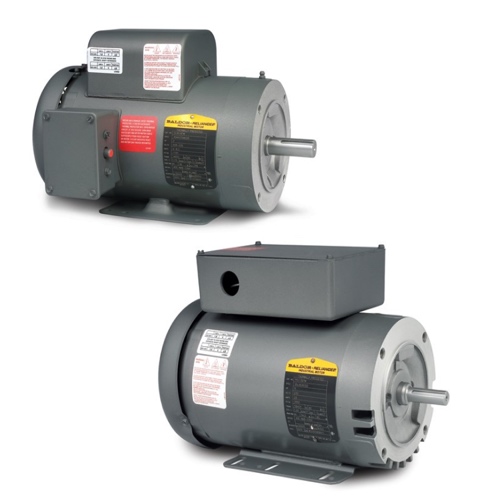Pressure Washer Motors

Motors in pressure washers supply the power for these versatile and useful cleaning machines, making them perfect for blasting away dirt, grease, and all kinds of grime. They use high-pressure water to do the job, and they are safe and easy to use.
Industrial-grade electric pressure washers rely on the single-phase motors they use, which are highly dependable and deliver the kind of power necessary for these machines to perform at their intended high levels. Another advantage that adds to the overall dependability and power of the single-phase motor design is its greatly reduced number of parts. These motors have very few components, and that lean design leads to a motor with both fewer spots for potential trouble to crop up and a greatly increased chance that the unit will hold up under heavy use and deliver high performance for a long time.
FAQs
Do pressure washer engines have enough machine power to operate a water pump?
Yes, pressure washer engines are designed to have enough machine power to operate a water pump effectively, providing the necessary pressure and flow for cleaning tasks.
Motor Starters, Soft Starters and VFDs
Motor Starters
Motor starters safely start and stop a motor in industrial applications. They are designed with a contactor, overload and circuit protection. They are used when basic motor control is required, where torque on the motor is not a concern and speed control is not needed. The advantages of motor starters include: lower cost, allows for remote operation, allows for monitoring of motor state (with the use of auxiliary contacts) and they are safe and efficient. The disadvantages include: high inrush current that can cause fuses to blow and breakers to trip if the inrush is too high, and the starter will allow a full torque to start the motor which can cause the motor to ramp up to full speed very quickly potentially causing the motor to wear and degrade prematurely.
Soft Starters
Soft starters protect motors from inrush current by gently ramping up the motor to full speed. They provide all of the same functions as a traditional motor starter. The advantages of soft starters include: they are less expensive than a VFD when only startup control is needed, they are a smaller system than a VFD where space is a concern and they prevent unwanted torque upon startup, prolonging the life of the motor. The disadvantages include: they are more expensive than a traditional motor starter and they do not allow for full speed control.
VFDs
A Variable Frequency Drive (VFD) allows for the slow ramp up of a motor during startup and the slowing down of the motor during shutdown. It also allows for full speed control during the entire run cycle of the motor. VFDs provide the same functions as both the traditional motor starters and soft starters. The advantages of VFDs include: full speed control (start, stop and in-between), more custom control and monitoring, energy savings due to efficient motor usage and less wear and tear on the motors. The disadvantages include: they are more expensive and larger than other motor control options and they generate heat that may require fans or AC units.

